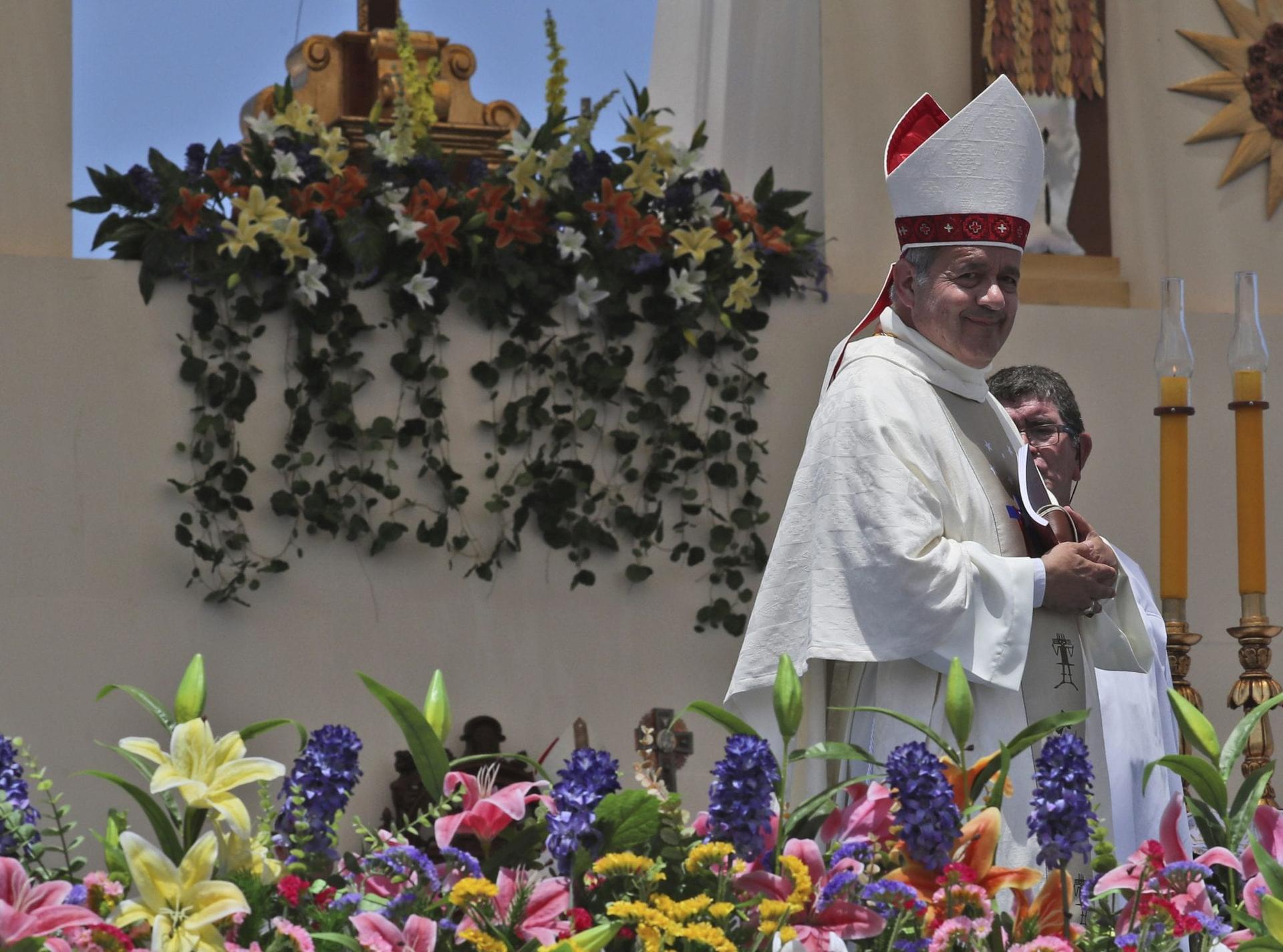ROME – After protests over a bishop accused of covering up sexual abuse marred his Jan. 15-18 trip to Chile, Pope Francis has decided to send Archbishop Charles J. Scicluna of Malta to listen to those who’ve “manifested their will to make known elements they possess” against Bishop Juan de la Cruz Barros Madrid, appointed by Francis in 2015 to the Diocese of Osorno.
Scicluna is a former top prosecutor for sexual abuse crimes in the Church under Pope emeritus Benedict XVI, whose most celebrated prosecution involved the late Mexican Father Marcial Maciel Degollado, founder of the Legion of Christ, who was found guilty in 2006 and sentenced to a life of “prayer and penance.”
The news came in a statement released by the Vatican’s press office on Tuesday, saying only that “regarding some recent affirmations” concerning Barros, Francis decided to send Scicluna, who currently serves as president of the Vatican’s doctrinal team dealing with appeals filed by clergy accused of abuse.
Scicluna declined a Crux request for comment on his mission in Chile, saying that he won’t give interviews because “my duty is to listen.”
Soon after the statement from the Vatican’s press office, Bishop Cristian Contreras Villarroel of Melipilla and president of the Chilean Bishop’s conference, released a statement saying that the appointment of Scicluna “demonstrates that the visit of the pope to Chile, beyond his luminous messages and homilies, has signified for him a attitude of real listening and closeness towards reality and the challenges of the Chilean society and the Church.”
Before being named to Malta in 2012, first as an auxiliary bishop and now as archbishop, Scicluna spent 10 years as promoter of justice at the Vatican’s doctrinal congregation, handling accusations of clerical sex abuse.
At the time, he said the church must respond to allegations clearly and not react with “inertia, a culture of silence or repression.”
Since being appointed to Malta, he has continued to work on the Church’s response to clerical sexual abuse, going to Geneva in 2014 to testify before the United Nations Committee on the Rights of the Child. In April 2015 he was sent by Francis to Scotland to collect testimony in a case against Cardinal Keith O’Brien, the former archbishop of St. Andrews and Edinburgh, who resigned in 2013 after admitting to sexual misconduct.
Barros, together with three other bishops, is accused of covering up for Father Fernando Karadima, who was found guilty of sexually abusing minors back in 2011, and who the Vatican condemned to a life of penitence and prayer. Barros has insisted that he never knew of Karadima’s crimes.
The statute of limitations on the priest’s abuses had expired, so he was never tried by Chilean courts, though the judge handling the case in 2011 deemed the accusations to be “truthful and reliable.”
Francis began his visit to Chile issuing an apology for the “irreparable damage” caused by clerical sexual abuse, and meeting with victims of abuse. However, throughout his visit, protesters held signs across the path of the popemobile, accusing Barros of a cover-up.
On his last day in Chile, Francis said that “there’s not a single proof against him, it’s all a calumny.” During his traditional in-flight press conference, the pope said that he regretted using the word “proof” when he should have said “evidence,” but stood by his words, insisting that he’s “convinced that he’s innocent.”
Addressing journalists who’d told him the evidence is there, the pope said, “You tell me they exist,” but insisted that he hasn’t seen the victims’ evidence because “they didn’t present themselves.”
RELATED: Pope regrets word choice on abuse in Chile, but stands by contested bishop
Approached by Crux, one of the victims of Karadima, who’s spoken out against Barros before, said that they had not attempted any further communication with the pope since his remarks. “We’ve only been doing so since 2005,” he said, meaning informing both civil and ecclesial authorities that the bishops knew what was happening in the up-scale parish of El Bosque.
Francis’s words produced wide reaction, both from survivors and even other church leaders, including Cardinal Sean O’Malley of Boston, head of the pope’s commission for the protection of minors.
Soon after the pope’s words, O’Malley said that it was “understandable” that Francis’s language in Chile about abuse victims accusing a bishop of a cover-up had caused “great pain.”
“Words that convey the message ‘if you cannot prove your claims, then you will not be believed’ abandon those who have suffered reprehensible criminal violations of their human dignity and relegate survivors to discredited exile,” O’Malley said.
The cardinal said he didn’t have the details regarding the pope’s statement, so he couldn’t address the words used by Francis, but insisted that the Argentine pontiff fully recognizes the failures of the Church and its clergy “who abused children and the devastating impact those crimes have had on survivors and their loved ones.”
RELATED: O’Malley’s ‘rebuke’ of pope on sex abuse stirs wide reaction
On Jan. 26, a writer for a Rome-based center with close Vatican ties said Saturday that Francis’s “infelicitous” words on the Church’s sexual abuse scandals in Chile amounted to a “failure,” by “inflicting an unintended wound” on victims, and may raise the hard question, “Is there hope for real change in the Church?”
“As hard as it is to acknowledge, it seems inevitable that those from whom we expect more will sometimes fail us,” wrote Sara Boehk, a member of the research team at the Centre for Child Protection, located at Rome’s Jesuit-run Gregorian University.
“In the face of disheartening news, how can we move forward?” she asked in a brief post on the centre’s web site. “How can we work for institutional change?”














